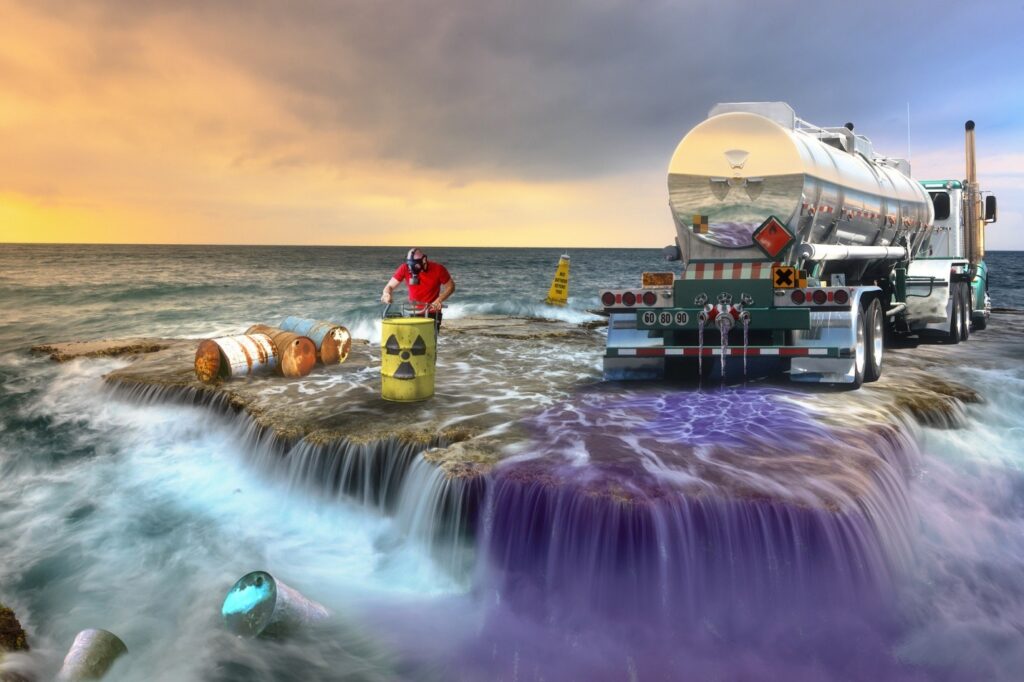The 8-Second Trick For Reclaim Waste
The 8-Second Trick For Reclaim Waste
Blog Article
The Basic Principles Of Reclaim Waste
Table of Contents8 Simple Techniques For Reclaim WasteExcitement About Reclaim WasteA Biased View of Reclaim WasteSome Known Questions About Reclaim Waste.7 Easy Facts About Reclaim Waste Shown
Check out the types, incidents, and kinds of liquid waste. Residential sewage waste refers to the waste and products from a household septic container. This type of waste is developed by people in homes, colleges, and various other buildings. This only consists of septic systems that have a drain area. The correct administration and disposal of residential sewer waste call for fluid waste to be moved to a sewage treatment plant where the correct approaches and equipment are applied to purify and take care of waste.
Commercial waste frequently includes possible dangers, such as flammable materials or a blend of fluid and solid waste items, and needs an advanced and thorough disposal procedure. The disposal of business waste commonly entails the purification of waste prior to transport to guarantee risk-free and proper disposal. Hazardous waste is produced from by-products and overflow of commercial procedures and manufacturing.
This sort of waste can not utilize the same sewer management transportation or procedures as septic or industrial liquids. The commercial waste administration process needs the inspection and testing of fluid waste prior to it undergoes the disposal process (liquid waste removal). Runoff waste is the liquid waste that originates from overflow and excess stormwater in very inhabited areas or cities
Drainage waste can cause contamination and flooding if not managed appropriately. Guaranteeing appropriate waste administration can stop catastrophes and minimize environmental damage.
Reclaim Waste Things To Know Before You Get This
Get in touch with PROS Solutions today to discover our waste management and disposal services and the appropriate ways to take care of the liquid waste you produce.
(https://moz.com/community/q/user/reclaimwaste1)This so-called 'wastewater' is not just an essential source however, after treatment, will certainly be released to our land, rivers or the sea. Used water from toilets, showers, bathrooms, kitchen sinks, washings and commercial processes is recognized as wastewater.

water made use of to cool down machinery or clean plant and equipment). Stormwater, a type of wastewater, is runoff that flows from farming and urban areas such as roofings, parks, yards, roads, paths and seamless gutters into stormwater drains, after rain. Stormwater streams unattended straight to neighborhood creeks or rivers, at some point getting to the sea.
Reclaim Waste Can Be Fun For Everyone
In Queensland, a lot of wastewater is dealt with at sewage treatment plants. Wastewater is transferred from residential or industrial websites with a system of sewers and pump terminals, called sewage reticulation, to a sewer therapy plant. City governments develop, keep and operate most sewage treatment plants. Operators are certified under the Environmental Management Act 1994 to discharge treated wastewater at an acceptable environmental standard into rivers.
The Department of Natural Resources advises neighborhood federal governments regarding handling, operating and keeping sewerage systems and therapy plants. In unsewered locations, neighborhood governments might call for owners to mount specific or family sewer treatment systems to deal with domestic wastewater from commodes, kitchens, restrooms and laundries. The Department of Natural Resources authorizes using household systems when they are verified to be effective.
In some new communities, therapy of some stormwater to get rid of clutter, sand and gravel has actually started making use of gross pollutant catches. Wastewater treatment happens in four stages: Eliminates solid issue.
Utilizes small living organisms knows as micro-organisms to damage down and eliminate staying dissolved wastes and great fragments. Micro-organisms and wastes are incorporated in the sludge.
Unknown Facts About Reclaim Waste
Nutrient removal is not readily available at all sewage treatment plants since it requires expensive specialised tools. It is ending up being a lot more usual in Queensland. Clear liquid effluent generated after treatment might still have disease-causing micro-organisms. If this effluent is launched right into rivers such as rivers or the sea, the micro-organisms will eventually die out.

Most wastewater flows right into the sewerage system. Under the Act, neighborhood federal governments carry out authorizations and licences for ecologically relevant tasks (Periods) including wastewater releases that may have a neighborhood effect.
Fascination About Reclaim Waste
Tracking gives factual details regarding water top quality and can confirm that licence conditions are being fulfilled. The information gotten through surveillance supplies the basis for making water high quality decisions.
Report this page